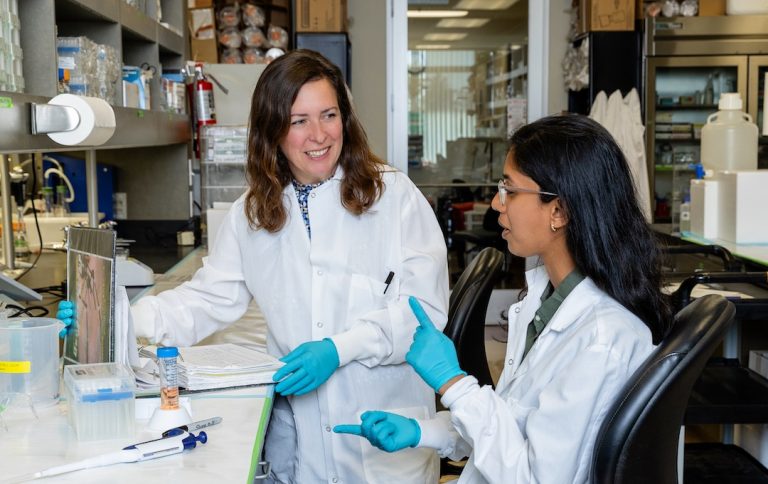A new timeline for Parkinson’s disease

LJI scientists discover that T cells may allow for early detection of Parkinson's cases—years before motor symptoms development.

LJI scientists discover that T cells may allow for early detection of Parkinson's cases—years before motor symptoms development.

How sex-based differences shape the immune system—and what these discoveries mean for the future of medicine

LJI scientists uncover autoimmune response that may help explain why Parkinson's disease is twice as common in male patients

Alessandro Sette, Dr.Biol.Sci., defines in chemical terms the specific structures (epitopes) that the immune system recognizes and uses this knowledge to measure and understand immune responses.

Some neurological diseases show up more in men versus women. Researchers need to know why.

LJI study suggests therapies could stop T cells from attacking brain cells in Parkinson's
The aim of this work funded by Aligning Science Across Parkinson’s (ASAP), in collaboration with Dr. Alessandro Sette, is to investigate T cell reactivity and disease progression in Parkinson’s disease. We are also interested in characterizing T cell reactivity in…

The international recognition reflects how LJI research is valued by scientific peers

LJI Professors Shane Crotty, Ph.D., Bjoern Peters, Ph.D., and Alessandro Sette, Dr. Biol. Sci., were named “Highly Cited Researchers” this week by Clarivate.

More than 930,000 Americans are living with Parkinson's disease
The lab investigates T cell reactivity and disease progression in Parkinson’s disease. Findings suggest immune cells are responsible for disease onset. Early interference with T cell responses could prevent the disease from manifesting itself or progressing. Selected References Lindestam Arlehamn…

New research gives further evidence that autoimmunity plays a role in Parkinson’s disease